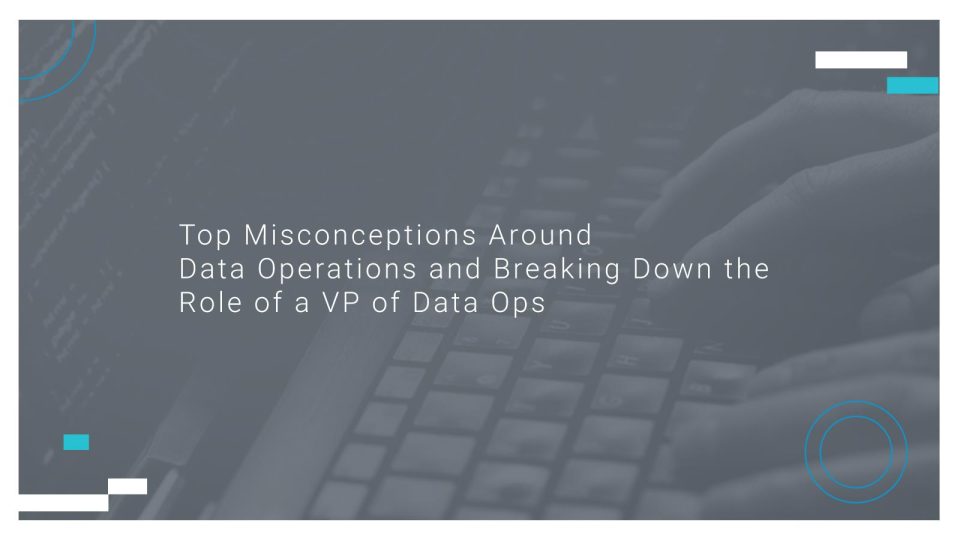Introduction
In today’s fast-paced business environment, data is often likened to oil—a valuable resource that powers organizational growth. However, just like crude oil needs refining to be useful, raw data requires meticulous management to yield actionable insights. This is where Data Operations, commonly known as DataOps, comes into play.
As a discipline that automates and streamlines data management tasks, DataOps is rapidly gaining prominence. DataOps acts like the support system for analyzing data, making sure the information is both correct and easy to access for making business choices. In a time where using data to make decisions is standard practice, the role of DataOps is becoming more and more important.
It’s no longer a luxury or an afterthought; it’s a critical component that bridges the gap between data collection and business intelligence. As we deal with a more complicated world of data, DataOps is becoming a crucial tool for helping businesses stay nimble and ahead of the competition.
Also Read: Leveraging AI and Machine Learning for DataSecOps
Navigating the Complex World of Data Operations: Debunking Common Myths
In the burgeoning field of Data Operations (DataOps), misconceptions abound. While DataOps is increasingly recognized as a cornerstone for effective data management and analytics, misunderstandings can hinder its full potential. Let’s dispel some of the most prevalent myths surrounding this critical discipline.
- DataOps is Just DevOps for Data: One common misconception is that DataOps is merely an extension of DevOps but focused on data. While both share the goal of streamlining processes, DataOps specifically targets the challenges in data management, such as data quality, lineage, and governance.
- It’s All About Technology: Many believe that DataOps is solely a technological solution. In reality, it’s a blend of people, processes, and technology. A successful DataOps strategy involves cultural changes and cross-functional collaboration, not just implementing new tools.
- Only for Big Data: Some think that DataOps is only relevant for organizations dealing with massive datasets. However, companies of all sizes can benefit from DataOps practices to improve data quality, speed up analytics, and make more informed decisions.
- It’s Too Complex to Implement: The perception that DataOps is too intricate to be practical often deters companies from adopting it. While it does require a strategic approach, the long-term benefits, such as increased efficiency and better compliance, far outweigh the initial complexities.
- Only the IT Department Needs to Be Involved: Another myth is that DataOps is the sole responsibility of the IT department. On the contrary, it requires the involvement of various departments, including business analysts, data scientists, and even C-level executives, to be truly effective.
- Immediate ROI is Guaranteed: Expecting instant returns is a mistake. While DataOps can significantly improve data management and analytics, the ROI is often realized over time as the organization becomes more agile and data-driven.
- It’s Just a Buzzword: Some skeptics dismiss DataOps as a passing fad or just industry jargon. However, its growing adoption and proven impact on business outcomes signify that it’s here to stay.
Decoding the Multifaceted Role of a VP of Data Operations
In the complex ecosystem of data management, the role of a VP of Data Operations (DataOps) is often shrouded in ambiguity. As organizations increasingly rely on data-driven strategies, this position has evolved into a linchpin for success. Let’s break down the key responsibilities and functions of a VP of DataOps.
- Strategic Vision: One of the primary roles is to set the strategic direction for data management and analytics. The VP of DataOps collaborates with C-level executives to align data initiatives with overall business goals.
- Team Leadership: Leading a cross-functional team is crucial. This includes data engineers, data scientists, and analysts. The VP ensures that the team is well-coordinated and focused on delivering high-quality data solutions.
- Process Optimization: Streamlining data processes is a core responsibility. From data collection to analytics, the VP of DataOps works to make these processes as efficient as possible, often leveraging automation and other advanced technologies.
- Data Governance: Ensuring data quality and compliance falls under the purview of this role. The VP establishes data governance policies to maintain data integrity and to comply with regulations such as GDPR or CCPA.
- Stakeholder Communication: Effective communication with stakeholders is vital. The VP needs to articulate the value of data initiatives to various departments and help them understand how these initiatives impact the organization’s success.
- Innovation and Adaptability: The data landscape is ever-changing. The VP of DataOps must be adaptable and open to adopting new technologies and methodologies to keep the organization at the forefront of data management practices.
- Performance Metrics: Measuring and reporting on the effectiveness of data initiatives is another key responsibility. The VP uses KPIs to gauge success and to make data-driven decisions for future projects.
Also Read: Success of Dell Technologies: The Leadership Journey of Michael Dell
Conclusion
Data Operations is a multifaceted discipline that goes beyond the common myths and misconceptions. Understanding its true nature and potential benefits can help organizations leverage data more effectively, driving better decisions and fostering sustainable growth. Moreover, as organizations continue to recognize the value of a data-centric approach, the VP of DataOps will undoubtedly play an increasingly critical role in steering the company toward data-driven success.
[To share your insights with us as part of editorial or sponsored content, please write to psen@itechseries.com]


